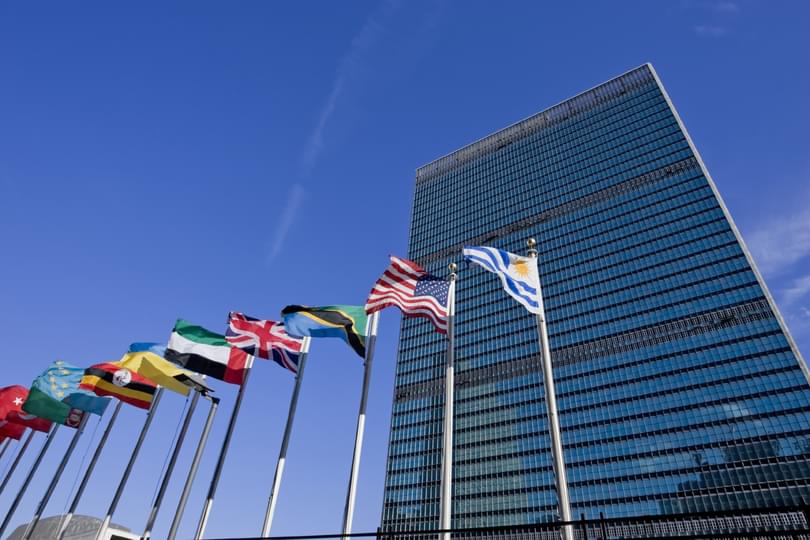
The UN Sustainable Development Goals agreed in 2015 set out ambitious targets for global development through to 2030, but how can members of the public keep track of how their country is progressing?
A new online resource - the Sustainable Development Goals (SDG) Tracker - is the first website that enables people to see progress towards the goals. Compiled by Oxford Martin School researchers, the site uses data pulled in from official sources including the UN, World Bank, World Health Organization, Institute for Health Metrics and Evaluation, WHO/UNICEF Joint Monitoring Programme for Water Supply, Sanitation and Hygiene; UNESCO, UN Food and Agriculture Organization, and others.
Oxford Martin Fellow Hannah Ritchie, of Our World in Data and the Oxford Martin Programme on Global Development, said the new site - SDG-Tracker.org - meant citizens could become more actively involved with their global and country-specific progress towards the goals.
"The Sustainable Development Goals were developed to be inclusive; to build a development agenda that everyone could actively participate in," she said. "But for people to participate, they need to have a quick, visual way of understanding how their country and the world is doing, and if we're making progress. We thought it was really important for people to be able to see this for themselves - so we built the first resource which allows them to do this.
“The SDG Tracker allows people around the world to see how the world and their countries are performing across all SDGs.
"As always, all of our content is open-access and free for anyone to use."
Outlining the importance of the site, she said: "The tracker allows anyone - policymakers, researchers, government officials, civil society - to understand where we're coming from (through historical data) and how we're progressing towards the SDGs. This interaction at all levels is critical if we are to create momentum and put pressure on governments, business, politicians and broader society to accelerate progress.
"It holds governments accountable to the general public: people must have a way of seeing whether their country is making progress, and if not, be able to ask questions as to why not.
"Only through building such a hub can we see the major gaps in the data that is available. We have 169 targets to meet, and for many, we still have no data available. We cannot manage or track what we cannot measure; these gaps in our understanding need to be filled soon. Our resource highlights where the gaps are."
The project currently has no dedicated funding, with the team at Our World in Data spending evenings and weekends pulling together the data and creating visualisations of country-by-country progress. "We thought it was essential for someone to undertake this work, and that it would hopefully kickstart wider collaboration on the SDGs," said Hannah.
The site will be automatically updated with new data as it is released, making it the most up-to-date, comprehensive overview of progress towards the SDGs.